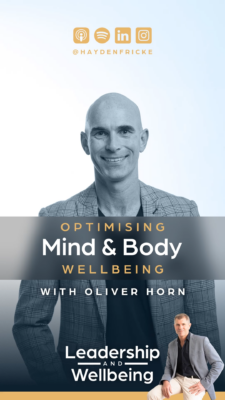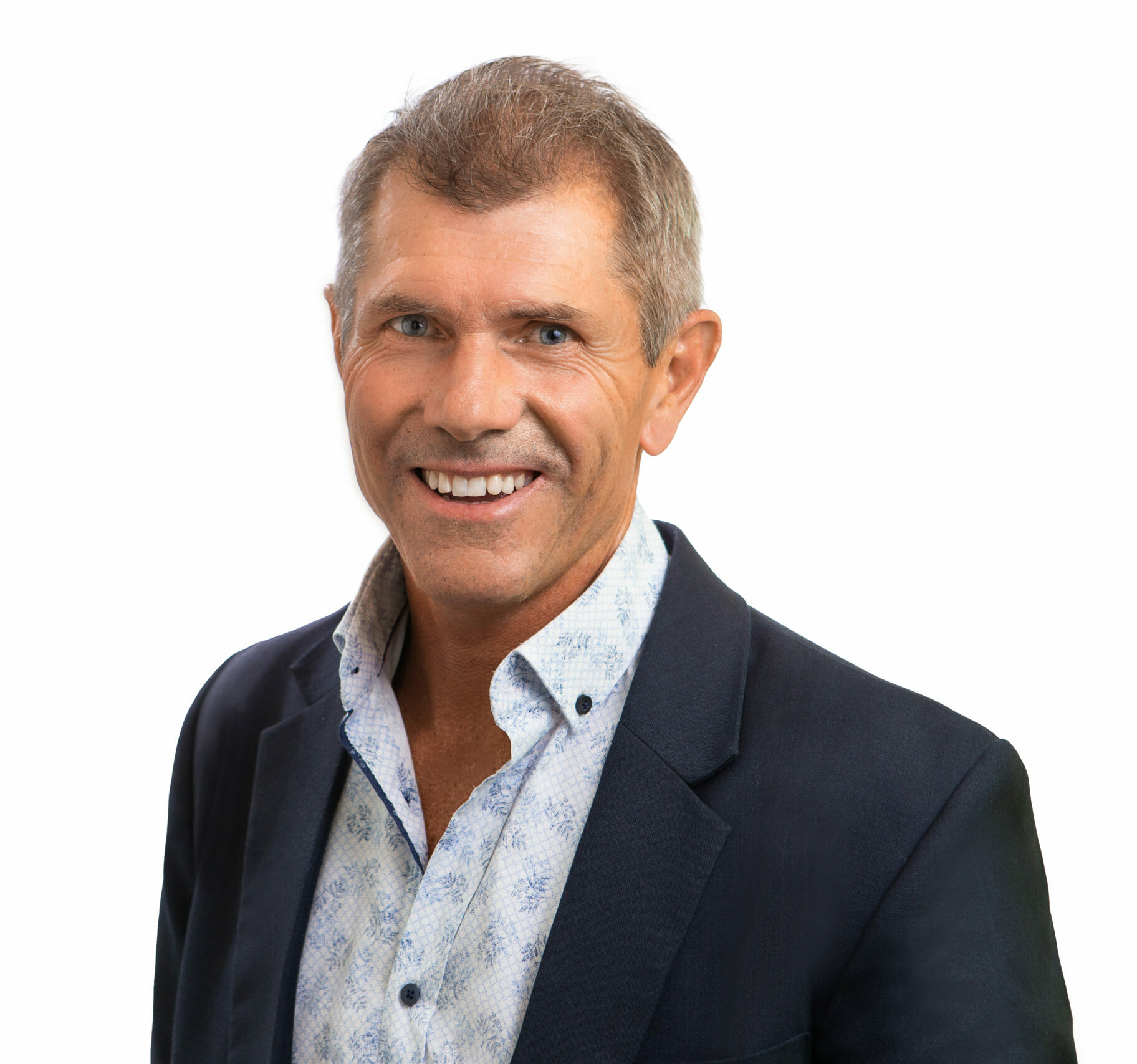Optimising Mind & Body Wellbeing with Oliver Horn
Leadership and Wellbeing Podcast
In today’s fast-paced and competitive business world, effective leadership and personal wellbeing are crucial for success. But what does it take to be a great leader and maintain a healthy work-life balance? I was delighted to be joined by Oliver Horn, CEO and Managing Director of Nutra Organics, who shared his insights on optimising mind and body wellbeing to become the best version of yourself as a leader.
 Hailing from Germany with more than 25 years of global experience in premium FMCG businesses, Oliver has lived and worked in many parts of the world, including various parts of Europe, USA, New Zealand and Australia. Before his current role, Oliver was the CEO of Swiss Wellness, Australia’s most recognised brand for wellness products. With vast experience in leadership roles throughout the years, Oliver’s broad thinking and innovative ideas on work and wellbeing led him to create purpose-led businesses that stand out through their high-performance cultures.
Hailing from Germany with more than 25 years of global experience in premium FMCG businesses, Oliver has lived and worked in many parts of the world, including various parts of Europe, USA, New Zealand and Australia. Before his current role, Oliver was the CEO of Swiss Wellness, Australia’s most recognised brand for wellness products. With vast experience in leadership roles throughout the years, Oliver’s broad thinking and innovative ideas on work and wellbeing led him to create purpose-led businesses that stand out through their high-performance cultures.
As a coaching client of mine since 2018, Oliver shares his initial realisation that the more traditional coaching styles were not quite as effective for him. That is, we had our first coaching session together sitting on chairs in his office. He found that this more formal setting hindered his ability to be open and authentic, he instead discovered the power of combining movement and conversation, such as exercising or sharing a meal together. Following Oliver’s suggestion, we decided to have our coaching sessions whilst being physically active, either walking, running or cycling, followed by an early morning breakfast. This unique approach to our coaching sessions speaks to Oliver’s leadership style of embracing vulnerability and fostering deeper connections with others. It also shows his authenticity in ensuring he always aims to ‘walk the talk’ when it comes to leadership and wellbeing.
For high-level leaders, there is often an expectation to be the expert with all the answers in any given situation. Oliver shares how this pressure negatively impacted not only his work but the quality of his personal life. He discusses the process he underwent to let go of his need for complete control, and how developing self-awareness was crucial in the transformation of his leadership style. Drotter, Charan and Noel (2001) have combined 30 years of research into the area of leadership and written a fabulous book called The Leadership Pipeline. In this book, they explain that as leaders move up from one leadership level to another (e.g. from Team Leader to Manager) they need to learn to gain new leadership competencies and ‘let go’ of old ones. This letting go aspect of leadership development is frequently the most challenging. Often a key element of this involves letting go of being ‘the expert’. Like many leaders, Oliver had to learn this and shares how he was able to do this.
We discuss the challenges of navigating globally diverse cultures, where the behaviour of others can often be misconstrued, difficult to understand or come across as offensive. Oliver shares how his experiences taught him the importance of suspending judgement and relinquishing the idea that your culture is the ‘right’ culture. The starting point for suspending your judgement and keeping a more open mind is to understand the strong connection between our thoughts and our emotions. That is, learning about the power of cognitive psychology to help us recognise our own biases and thinking traps often awakens our minds to alternative ways of thinking. When we apply this to understanding cultural differences, we soon learn to appreciate that there is no ‘right’ culture. By approaching cultural differences with curiosity and respect, leaders can bridge the gap and foster greater collaboration.
Oliver’s inspiring story is a testament to the power of vulnerability and its ability to create safe and inclusive workplaces, where individuals thrive, and leaders build trust within their teams. Brene Brown’s work on the concept of vulnerability was particularly powerful for Oliver as he had to learn to embrace his own imperfections and find ways to be courageous in recognising that as a leader, he didn’t have all the answers and that was OK. The incredible insights Oliver shares in our conversation are truly enlightening and serve as a guiding light for leaders seeking to make a positive impact in their organisations and lives.
LINKS:
Listen and subscribe to the podcast: https://haydenfricke.com/leadership-and-wellbeing-podcast/
Connect with Hayden:
-Websites:
https://haydenfricke.com/
https://www.steople.com.au/
– APS College of Organisational Psychologists
-LinkedIn:
https://www.linkedin.com/in/hayden-fricke/

